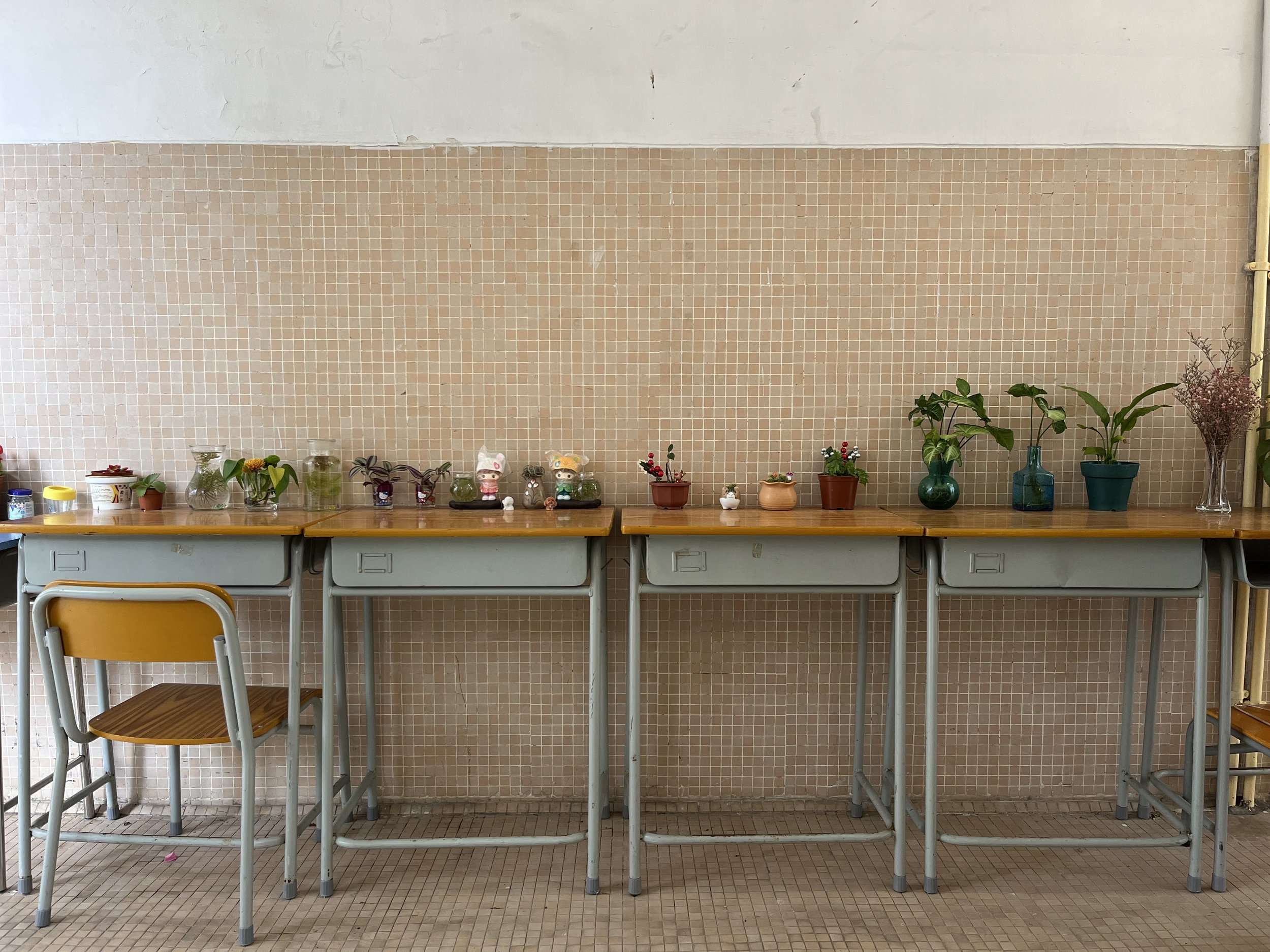Time and Unfamiliar Tides - David Harradine
15:02pm and I’m on a flight from Hong Kong to London, hurtling through the upper atmosphere, chasing the sun into the western sky. The sun will win this race: taking off early afternoon for a 14 hour flight, we land in London seemingly six hours later, sliding down into the darkness of a January night. The sun, the seasons, winter, sunset; chasing the light into the western sky, losing the race.
We’ve been in Hong Kong for a week: a research trip for a new project with West Kowloon Cultural District. Our subject: time.
We visited schools, we welcomed children into the theatre; we played, we talked, we improvised together. We meditated, we rested, we took time out, we drifted, we wondered, we wandered, we watched and listened and talked and walked and ran. We lay in the sun, resting, by the harbour. We met many people, to talk about time: a meteorologist, a farmer, a ship’s first captain, a nurse, a watch maker, a gardener, a domestic helper, a dancer, a shift worker, a metro-schedule-keeper, a retired finance director.
Time as work, light, the moon and the stars, navigation, new growth, harvest, recovery, labour, yearning, weather, the climate emergency, movement, money, homesickness, loss.
Time as stillness, play, rest, resistance (thankyou Tricia Hersey), slowing down (thankyou Alison Clark), becoming, being, waiting, wandering, wondering.
We climbed the Peak: the slow progress of human effort up a very steep hill.
We swam in the sea: the pull and push of unfamiliar tides.
We shared meals with our new friends from West Kowloon: the ritual of coming together to eat, to linger, to nourish.
“The sun, the seasons, winter, sunset; chasing the light into the western sky, losing the race.”
I remember the children we met. That tiny boy, playing alone in the dark expansiveness of the studio, anchored in his body, freed in time, playful, gleeful. Those girls learning coding, solving the problem through experimentation and play. The older children’s art class: the predetermined blocks of colour leaking across the rules of the page; spilt water, smudged, blots of colour escaping the confines of space, of time.
Leaving now and here, in the upper atmosphere, hurtling through the darkening sky, I feel time trailing behind me, new connections, new threads of possibility woven from this present to a different future.
What would it mean to make something for children that dismantles the boundaries and bonds of time? What would that be? What could that be?
That’s the question we’re taking home, chased by the sun, hurtling into the past, ready for the future.



